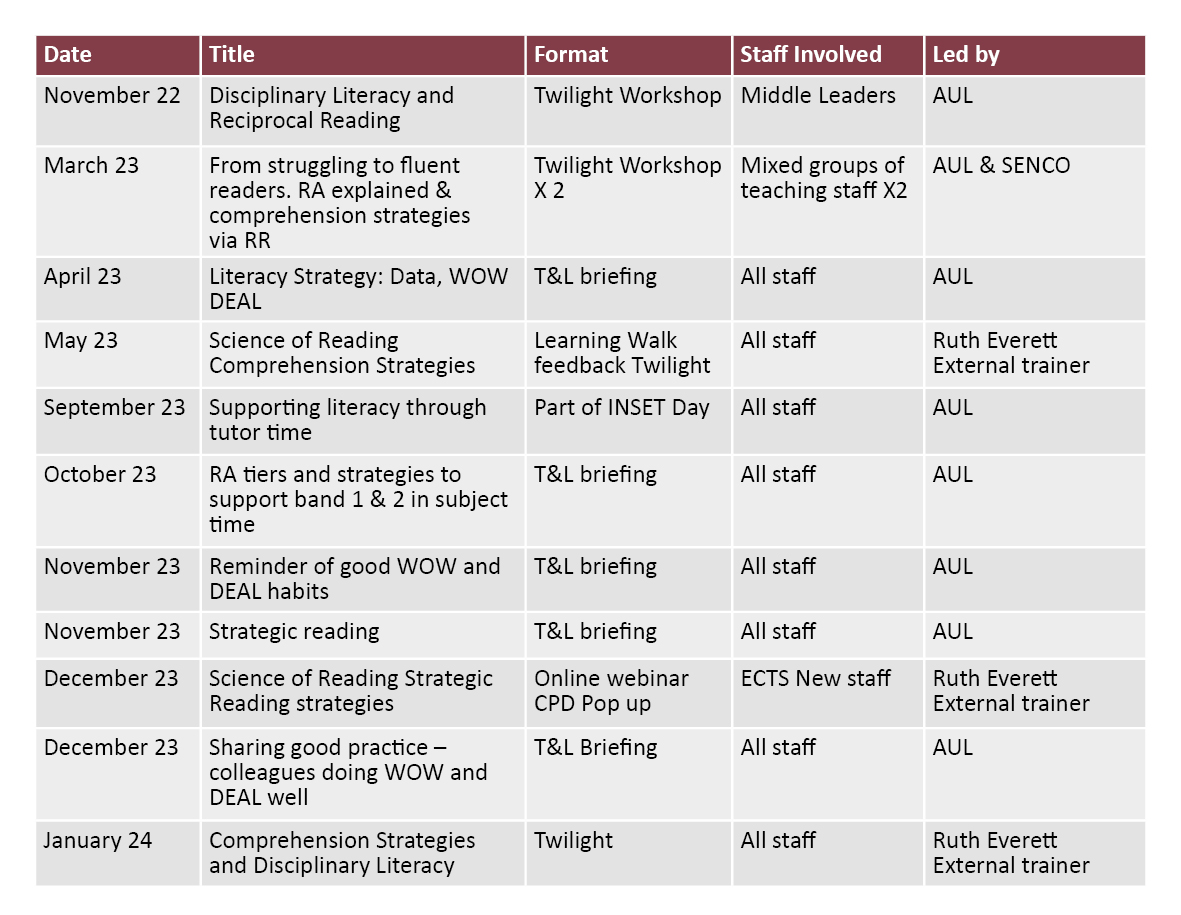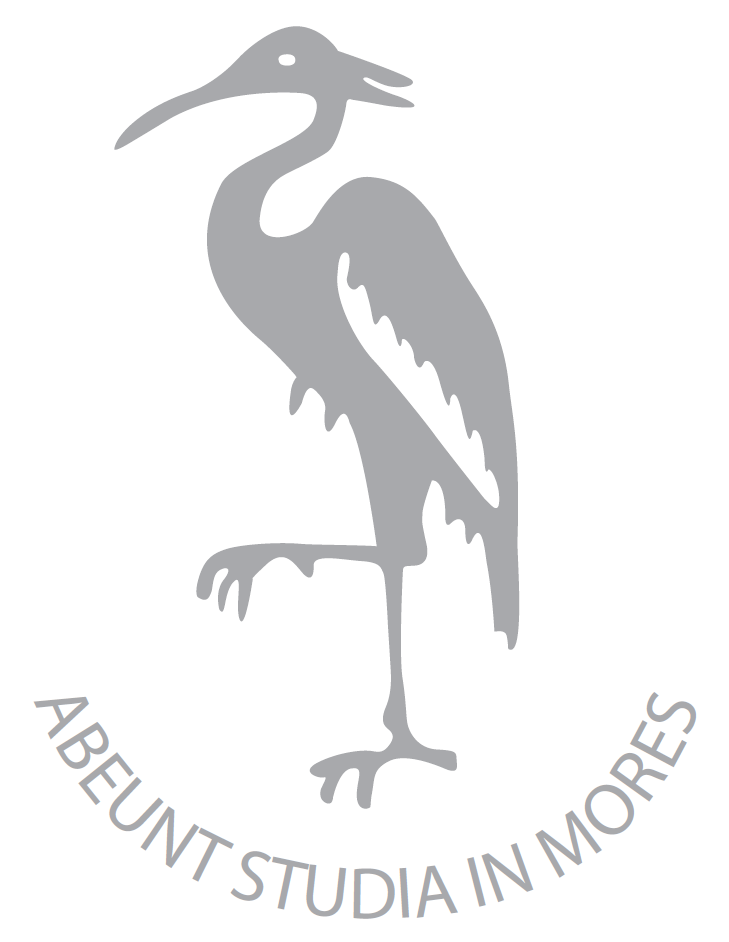Reading and Vocabulary January 2024
Pupils must be able to read for them to achieve academically. As pupils progress through an increasingly specialised curriculum, there is a growing need to ensure that pupils are trained to access the academic language and conventions of different subjects. Therefore, putting reading at the heart of the curriculum will support all pupils to be able to read well.
At Wanstead High we recognise that the professional development of all staff is key to supporting pupil progress. To ensure that all staff have the tools to support pupils reading in their subjects and across the school, we have made a commitment to provide ongoing training in this area.
In addition to inhouse training, we have been working with an external trainer, Ruth Everett FCCT, SLE, Consultant of English and Literacy for the National Literacy trust. She has also worked as the evidence lead at the EEF (Education Endowment Foundation) on improving literacy in secondary schools.
Summary of staff training to date

Vision
Our intent at Wanstead High School is to ensure that all pupils can read and understand both academic and non-academic texts fluently and are strategic readers. They will be able to articulate, discuss and write about what they have read in a way which respects the views of others.
We firmly believe that reading, writing, speaking and listening are essential skills which enable pupils to become experts in every subject across the curriculum. These skills are vital to make sense of the world around us. As such, the better we are at using these skills the more successful we can expect to be in life. We recognise that improving literacy can have an impact on pupils’ self-esteem, motivation, behaviour and attainment.
We believe that the core skill of reading enables all pupils to access the curriculum. In addition, reading for pleasure has a direct impact on cognitive and social communicative development. It has been shown to improve health and wellbeing, as well as improving compassion and empathy for others. Therefore, at Wanstead High School, our aim is to develop each pupil’s potential to the point where they are reading at, or above, their chronological age. Baseline data will inform us of individual intervention need.
Research shows that reading improves vocabulary, that there is a strong correlation between vocabulary size and academic success. Knowing more words means you can learn more words. We believe that vocabulary is improved by exposure and usage of tier 2 and 3 vocabularies, the books we read and the books that are read to us.
By focusing on addressing the reading and vocabulary gap and embedding disciplinary reading in our initial strategy, we hope to better equip pupils with the tools they need to be both successful members of the school community and modern world.
Aims
- Communicate the commitment to literacy and in particular reading to all staff and pupils alike.
- Staff know the reading ability of their pupils and are provided appropriate training in the strategies to support struggling readers.
- The pastoral offer includes reading for pleasure and comprehension strategies as part of the tutor programme.
- Pupils become strategic readers and teachers across the curriculum model how strategic readers read for meaning.
- Promote the use of Tier 2 vocabulary with the aim of closing the vocabulary gap.
- Improve pupils' understanding and use of Tier 3 disciplinary vocabulary by explicitly teaching it across the curriculum.
- Raise the profile and visibility of reading and disciplinary literacy across all curriculum areas and empower staff with the confidence to teach literacy in their subject areas.
- Provide bespoke support for our struggling readers and specialist training for staff working with them.
- To monitor pupil progress in reading and to evaluate strategies for those identified as not making expected progress.
- To promote a love of reading for pleasure within our school through enrichment and curriculum offers.
